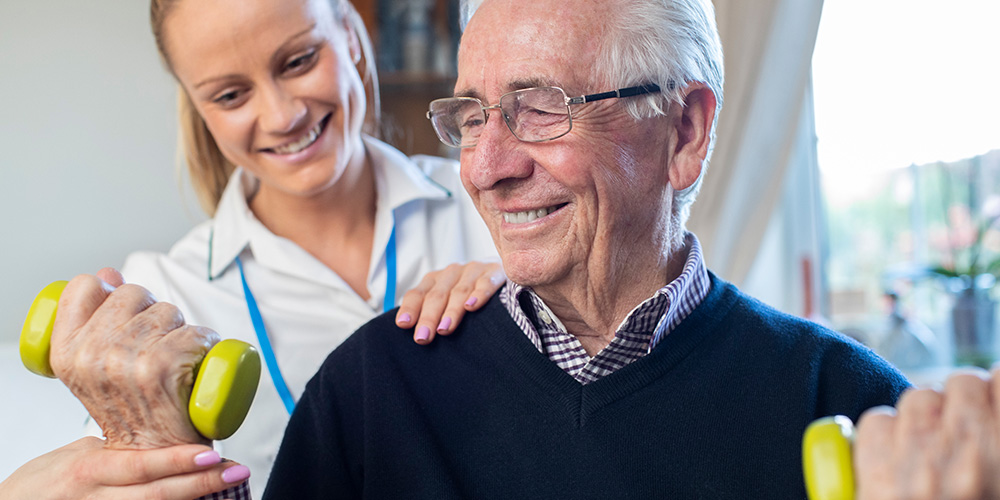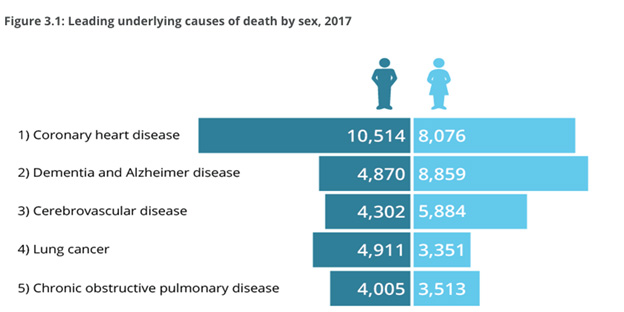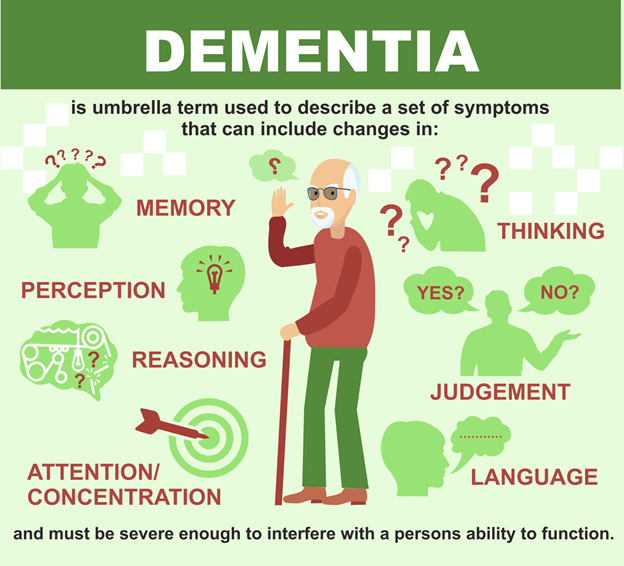
How Physiotherapy Can Help People With Dementia?
Wednesday, January 22, 2020
When caring for someone with dementia, you may automatically assume that their mental capacities are too far gone to benefit from physiotherapy. After all, it might seem counterintuitive to work with a consistent plan if someone suffers from memory loss or other cognitive issues.
But the truth is, physiotherapy can improve the mobility of those living with dementia, can slow down their cognitive deterioration, and can give them a better quality of life. Read on for more information on dementia, its symptoms, and how working with a physiotherapist can help.
What is dementia?
According to Dementia Australia, dementia describes a collection of;
symptoms that are caused by disorders affecting the brain. These disorders can mess with not only memories, but also with thinking, language, perception, judgement, behavioural patterns, and can negatively impact the ability to perform everyday tasks.
A survey completed by Harvard University and the Alzheimer's Europe consortium found dementia to be the second leading health concern among adults after cancer. Dementia is serious because it is non-reversible.
Dementia is also misunderstood to be a natural part of the aging process, when in fact, this sentiment is false. It also usually doesn't arise from a single disease which makes the disorder a complicated one.
Still, it is the single most significant factor that causes disability among Australians over 65 and the leading cause of death among Australian females.

Note: Leading causes of death are based on underlying causes of death and classified using an AIHW-modified version of Becker et al. 2006.
Source: AIHW National Mortality Database (Table S3.1).
Difference Between Dementia and Alzheimer's
The difference between dementia and Alzheimer's is simply that dementia is the “umbrella term” for various cognitive disorders whereas Alzheimer's falls under that umbrella as one of the many forms of dementia.
Alzheimer's disease is the most common form of dementia and significantly affects memory, language, and thought. Most people with Alzheimer's develop the disease in old age but younger people have been known to develop it.
Basically, some symptoms of dementia and Alzheimer's might overlap, but they are not one and the same.
Types of Dementia
There are a few types of dementia worth mentioning here as it's important that your physiotherapist understands your condition as best as possible.
- Cortical dementia: Associated with damage that primarily affects the brain's cortex or outermost layer causing problems with memory, language, thinking, and social behaviour.
- Sub-cortical dementia: Associated with damage that primarily affects the part of the brain below the cortex causing problems with emotions, movement, and memory.
- Progressive dementia: Describes dementia that gradually gets worse causing problems with more cognitive abilities as it develops.
- Primary dementia: Dementia that is not caused by another disease or injury
- Secondary dementia: Dementia caused by another disease or injury
Dementia Symptoms
The early signs of dementia are simply forgetfulness and although this symptom can seem benign and non-threatening, it's important to pay attention to these subtle cues as they could be a sign of further cognitive problems.
Other common symptoms associated with dementia include:
- Memory impairment: Inability or impaired ability to learn new information or recall past information
- Aphasia: Inability or impaired ability to understand or produce speech
- Apraxia: Inability or impaired ability to perform motor activities despite motor functions being available
- Agnosia: Inability or impaired ability to recognise or identify objects despite having the sensory abilities available
- Inability or impaired ability to plan, organise, sequence, and think abstractly
- Impairment of social and occupational functions
- Cognitive impairments occur consistently and not only during periods of delirium
- Cognitive impairments aren't a result of other medical or psychiatric conditions

According to the DSM-IV, if all of these symptoms are present, a person can be diagnosed with dementia.
Unfortunately, dementia can also lead to mental illnesses such as depression and anxiety, with depression affecting 20-30% of dementia sufferers and anxiety affecting about 20%. As you might imagine, people can easily start to feel helpless while suffering from dementia which makes it even more important to find treatment options that help make dementia's symptoms less severe.
Physiotherapy Exercises for Dementia
The good news is, physiotherapy is considered an effective treatment option for people with dementia. As we've mentioned, the symptoms of dementia are widespread and they affect not only the sufferer, but their family members, coworkers, and friends.
The first thing we want to think about is dementia prevention. You might not think of seeing a physio as a means of avoiding the onset of dementia, but thinking of your body in a more holistic way might help you understand the approach.
Long story short, what's good for your heart is good for your brain. So, working on cardio fitness, healthier physiological habits, and caring for your body as a whole is a productive way to prevent the onset of dementia and other brain-related issues.
As for working with people who already have dementia, there are some more specific approaches. Dementia physiotherapy focuses on the goal of creating more independence for people living with dementia in two major ways:
- Promoting a physically active lifestyle which helps with both physical and mental health
- Educating carers and family members about home safety ideas, strategies to reduce falls and injuries, and communication techniques to improve everyone's quality of life
Common types of exercise a physiotherapist might use with a dementia patient include:
- Pool-based therapy where they'll not only exercise but also practice doing multiple tasks at once
- Group exercise classes to improve balance and mobility
- Technology-based prompting systems that deconstruct daily tasks by creating verbal or written prompts
- Virtual reality dancing using systems like the Nintendo Wii to mimic movements and receive auditory and tactile feedback
Based on your unique circumstances, your physio will be able to cater to your needs and figure out the best way to treat your dementia. After a while, these habits will start to form in the deepest part of your brain and even if it doesn't seem like much is happening, exercise and moving your body is helping with your dementia.
Other resources that might be of value
- Falls Prevention Strategies In Aged Care
- Difference Between Rheumatoid Arthritis & Fibromyalgia
- Osteoarthritis Exercises For Knee Pain
To talk to one of our friendly, expert physiotherapists about dementia treatment, give us a call. Our clinic and mobile services are here for you!
Book an online home or mobile service anywhere in Australia today. Our therapists come to you wherever and whenever.
References
https://www.alzheimer-europe.org/Research/Value-of-Knowing
https://www.aihw.gov.au/reports/life-expectancy-death/deaths-in-australia/contents/leading-causes-of-death
https://medind.nic.in/daa/t12/i1/daat12i1p200.pdf
This article was originally written by Jonathan Moody from Physio Inq

